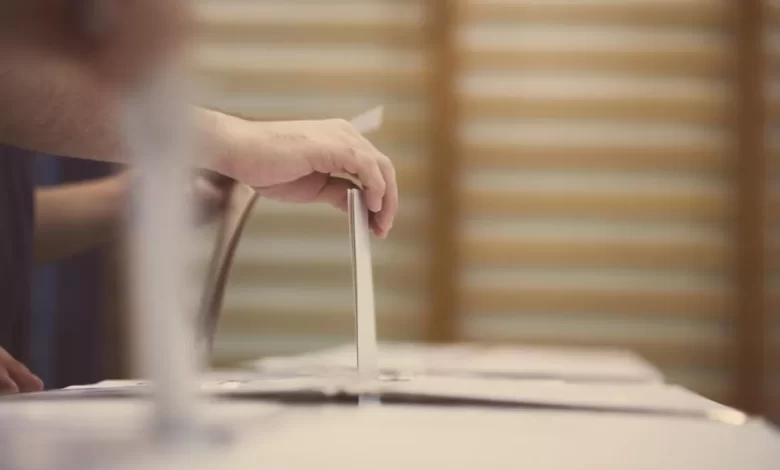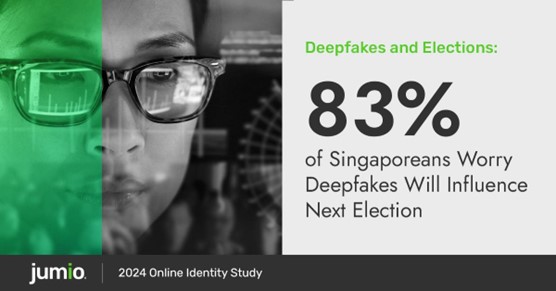Deepfakes Pose Major Threat to Singapore’s Elections

Jumio, the leading provider of automated, AI-driven identity verification, risk signals and compliance solutions, today released new findings from its Jumio 2024 Online Identity Study, revealing growing concern among the general public on the political influence AI and deepfakes may have on Singapore’s next election, and how they might influence trust in online media. Developments in AI and machine learning have made it much easier to create compelling fake news stories, altered images, videos or audio recordings. This technology can fabricate events, statements and appearances, spreading misinformation quickly and deceiving viewers who often take these false narratives as legitimate news.
Recent examples highlight the real-world impact of deepfakes on political processes. Indonesia’s social media channels saw AI being abused for political purposes prior to February’s elections, including a long-deceased army general endorsing the incumbent. In Singapore, officials are considering a temporary ban on political deepfakes ahead of the next general elections, which have yet to be called but must happen by November 2025. South Korea took a similar approach, imposing a 90-day ban on deepfakes before its April 2024 election.

Worrying Deepfake Findings
Jumio’s study examined the views of more than 8,000 adult consumers, split evenly across the United Kingdom, United States, Singapore and Mexico, providing a comprehensive global perspective on the impact of deepfakes. The data revealed that:
- 83% of Singapore consumers are worried about the potential for AI and deepfakes to influence upcoming elections in their country, compared to 75% globally.
- Singapore consumers feel deepfakes undermine trust in politicians and media, with 76% reporting increased scepticism in the content they see online, compared to the last election.
- Singapore consumers are most confident in their ability to easily spot a deepfake of a political figure or celebrity — 60% compared to just 33% in the UK, 37% in the U.S. and 51% in Mexico.
- 66% of consumers in Singapore say they trust political news that they see online, despite the possibility of encountering audio, video and image deepfakes, compared to the global average of 43%.
“With half of the global population participating in elections this year, the potential influence and impact of generative AI and deepfakes demand our immediate attention,” said Jumio CEO Robert Prigge. “Public faith in online information is crumbling, demanding a transparent discourse to confront this challenge and empower citizens with the tools to discern and report deepfakes. Online platforms hold a critical duty to leverage cutting-edge detection measures like multimodal, biometric-based verification systems to fortify our defences against deepfakes influencing pivotal elections.”
Find additional data and insights here.
Methodology
The research was conducted by Censuswide, with 8,077 consumers split evenly across the United Kingdom, United States, Singapore and Mexico. The fieldwork took place between March 25 and April 2, 2024. Censuswide abides by and employs members of the Market Research Society and follows the MRS code of conduct which is based on the ESOMAR principles and are members of The British Polling Council.




